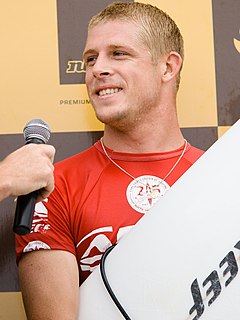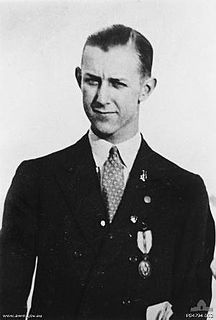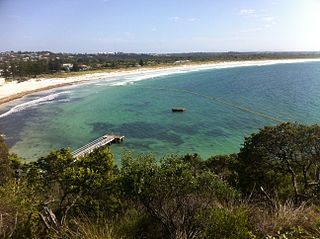 W
WThe Australian Shark Attack File has recorded that since 1791 there have been 639 shark attacks in Australia with 190 of them being fatal.
 W
WGeorge Coulthard was an Australian cricketer and Australian rules footballer.
 W
WMichael Eugene Fanning is a former Australian professional surfer. Fanning won the 2007, 2009 and 2013 ASP World Tour. In 2015, he survived a shark attack with what is suspected to be a great white shark during the J-Bay Open finals in Jeffreys Bay, South Africa.
 W
WStanley Frederick Gibbs, GC was an Australian shipping clerk and an exchange recipient of the George Cross, the highest civil decoration for heroism in the United Kingdom and formerly in the Commonwealth. On 3 January 1927, the day after his eighteenth birthday, Gibbs went to the rescue of 15-year-old Mervyn Allum during a shark attack at Port Hacking, New South Wales. He managed to fend off the shark by striking at it with his legs and fists and, with the assistance of a friend, pulled Allum clear of the water. Although Alllum died from his injuries, Gibbs was publicly praised by the coroner and local community leaders for his actions, and was subsequently awarded the Albert Medal.
 W
WMiddleton Beach shark barrier, also referred to as the Albany shark barrier and the Ellen Cove shark barrier, is a shark barrier to prevent sharks entering the main swimming area at Ellen Cove at the southern end of Middleton Beach, a popular swimming beach in Albany in the Great Southern region of Western Australia.
 W
WThere have been 82 recorded shark attacks in South Australia since the establishment of the colony in 1836. 20 of those have involved a single fatality. Victims were involved in a range of aquatic activities, including surfing, diving, spear-fishing, snorkeling, boating and swimming. Six of the fatalities occurred off the coast of greater metropolitan Adelaide, with the remainder distributed across South Australia's extensive coastline. Many of the fatal attacks have been attributed to Great white sharks.
 W
WThe Western Australian shark cull is the common term for a former state government policy of capturing and killing large sharks in the vicinity of swimming beaches by use of baited drum lines. The policy was implemented in 2014 to protect human swimmers from shark attack following the deaths of seven people on the Western Australian coastline in the years 2010 to 2013. National public demonstrations opposing the policy attracted international attention to the issue. In September 2014 the seasonal setting of drum lines was abandoned following a recommendation made by the Western Australian Environment Protection Authority. From December 2014 to March 2017, the special deployment of drum lines was permitted in cases where sharks were deemed to present a serious threat to public safety. This policy allowed the government of Western Australia to kill "high-hazard" sharks it found to be a threat to humans; the policy was criticized by senator Rachel Siewart for damaging the environment. In March 2017 the use of drum lines was abandoned by the newly elected West Australian state government. In August 2018 following continual shark attacks the West Australian state government reversed their position and announced a 12-month trial of "SMART" drumlines along Western Australia's South West coast, near Gracetown.